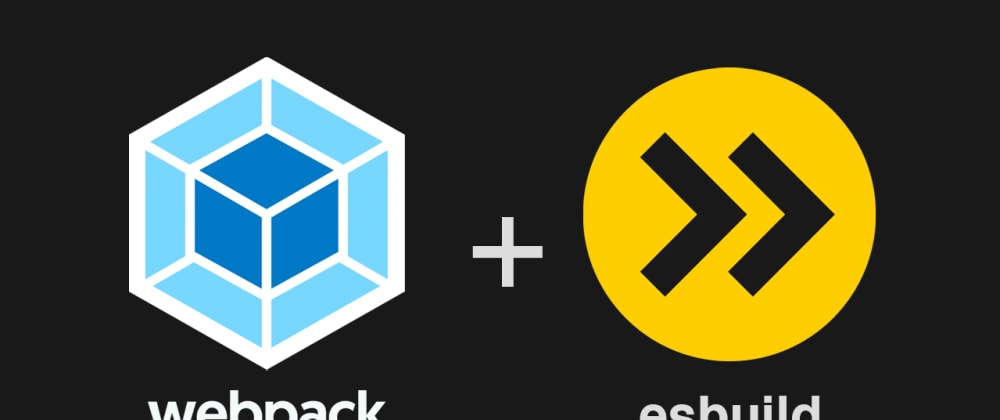- Published on
Blazing fast TypeScript with Webpack and ESBuild
4 min read
- Authors
- Name
- NMILI Abdelali
- @yonkoGo

Table of Contents
Recently, I migrated a project I've been working on to TypeScript. I decided to use Webpack in combination with esbuild loader. The reason being esbuild ecosystem is still relatively new when compared to other bundlers like Webpack, rollup, parcel etc. in terms of plugins and loaders.
Code for this article is available here.
I've also made a video for you, if you're a visual learner like me!
What is Webpack?
At its core, webpack is a static module bundler for modern JavaScript applications. Basically it takes all your code, assets, dependencies and bundles them into static files that are easier to work with and deploy. You can read more about it here
What is esbuild?
esbuild is an extremely fast JavaScript bundler, upto 10-100x fast. You can check the benchmark and read more here.

Getting started
Let's assume we have simple hello world typescript project
├── dist
├── index.ts
├── package.json
├── tsconfig.json
└── yarn.lock
Installing Webpack
Let's install webpack and webpack-cli, we'll be using Webpack 5
yarn add -D webpack webpack-cli
Let's install the plugins
Now we'll install the following plugins:
esbuild-loader (secret sauce!) fork-ts-checker-webpack-plugin (helps us with typechecking) nodemon-webpack-plugin (We can also use webpack-dev-server)
yarn add -D esbuild-loader fork-ts-checker-webpack-plugin nodemon-webpack-plugin
Let's create our Webpack config
Let's build our webpack config! You can read more about the config here
// External modules
const path = require('path');
// Webpack plugins
const NodemonPlugin = require('nodemon-webpack-plugin');
const ForkTsCheckerPlugin = require('fork-ts-checker-webpack-plugin');
// Environment config
const isDevelopment = process.env.NODE_ENV !== 'production';
const mode = isDevelopment ? 'development' : 'production';
// Bundle config options
const BUNDLE = {
entry: './index.ts',
output: {
filename: 'app.js',
path: path.resolve(__dirname, 'dist'),
},
};
module.exports = {
mode,
target: 'node',
entry: BUNDLE.entry,
stats: 'errors-only',
module: getLoaders(),
plugins: getPlugins(),
resolve: {
extensions: ['.tsx', '.ts', '.js', '.json'],
},
output: BUNDLE.output,
};
/**
* Loaders used by the application.
*/
function getLoaders() {
const esbuild = {
test: /\.(js|jsx|ts|tsx)?$/,
loader: 'esbuild-loader',
options: {
loader: 'tsx',
target: 'es2015',
},
exclude: /node_modules/,
};
const loaders = {
rules: [esbuild],
};
return loaders;
}
/**
* Plugins
*/
function getPlugins() {
const nodemon = new NodemonPlugin();
const tsChecker = new ForkTsCheckerPlugin();
return [tsChecker, nodemon];
}
Adding scripts
Let's add some scripts to our package.json. During development we'll take advantage of Webpack's Hot Module Replacement with the --hot flag
"start": "yarn build --watch --hot",
"build": "webpack --color --progress"
Let's start our app!
yarn start
Note: You can use webpack-node-externals to ignore any node_modules from your bundle
Great! Now you should be up and running! Feel free to reach out to me on Twitter if you face any issues.